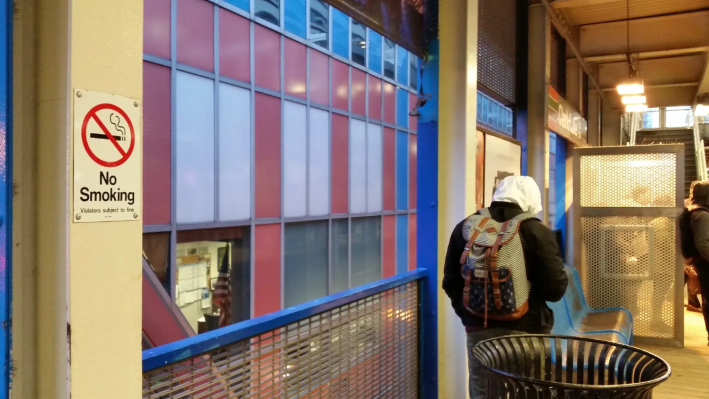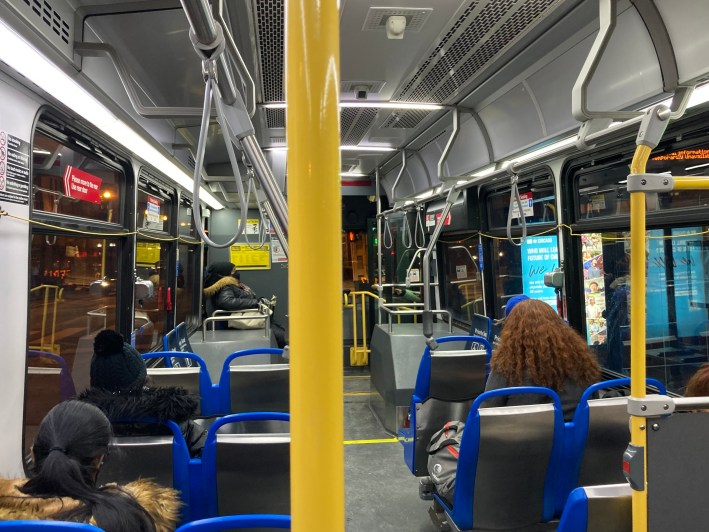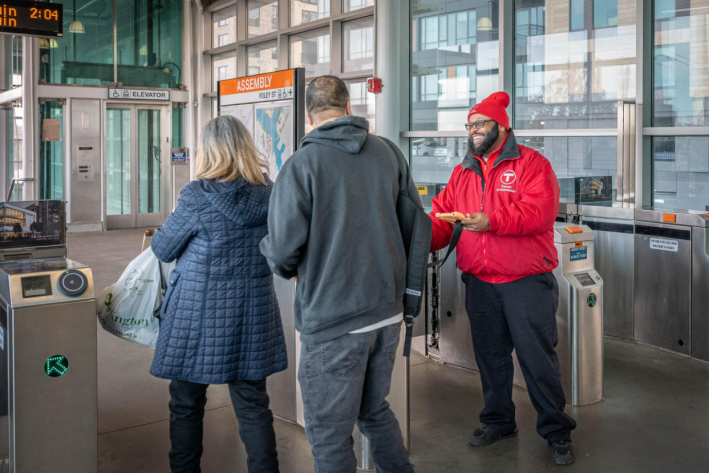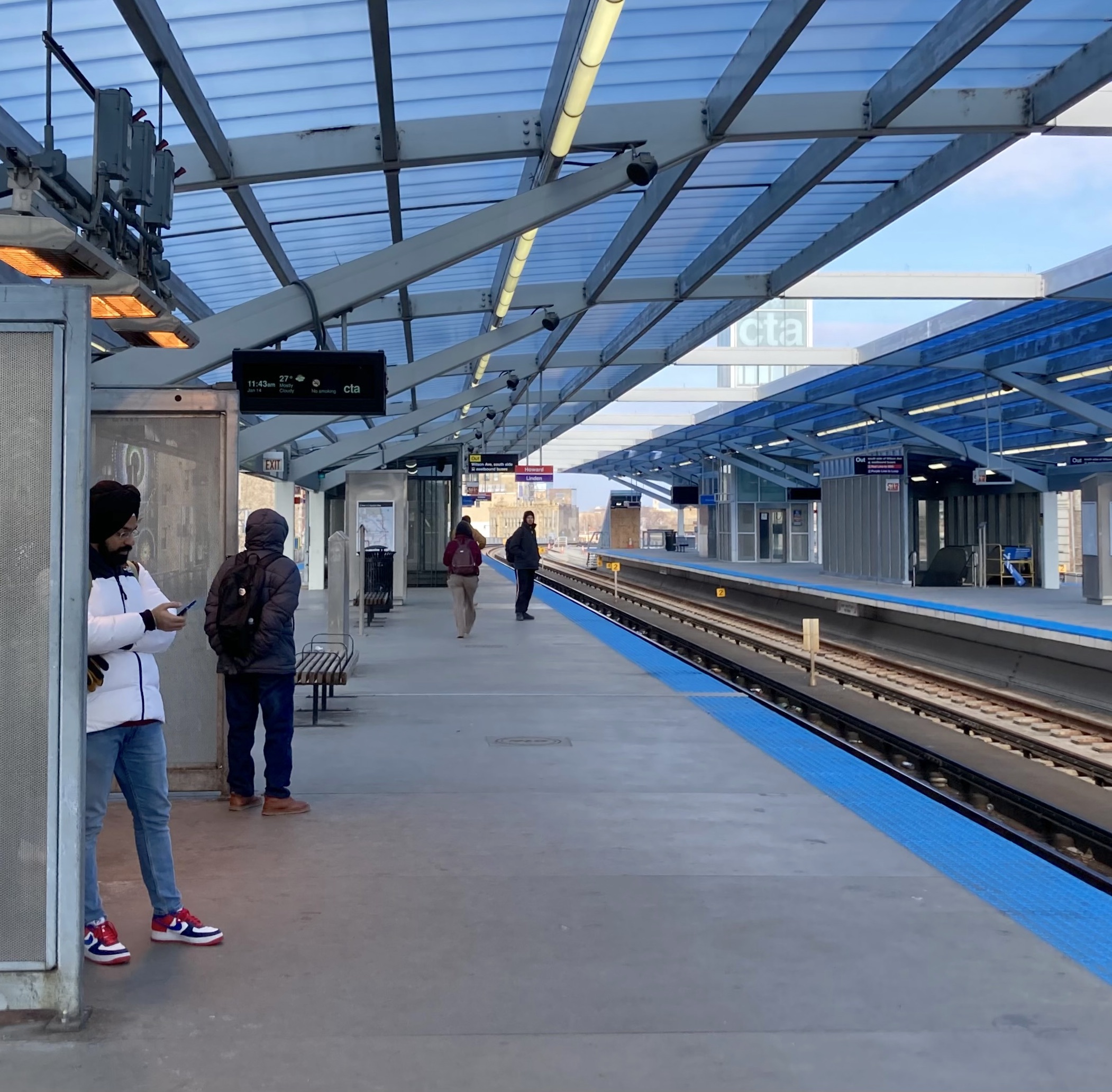MarySue Barrett served as president of the independent Metropolitan Planning Council for 25 years, where she was involved in numerous efforts to improve metro Chicago’s transportation network. In 2022, she founded MSB Policy Consulting and is advising the Natural Resources Defense Council (NRDC) on coordinated infrastructure investments. MarySue also is a Nonresident Senior Fellow with the Brookings Institution.
Why do I still do it? That’s the question friends, colleagues, and family bombard me with when I mention my latest awful incident while riding transit in Chicago.
Recently, I posted about how the stench of tobacco and marijuana smoke forced me to move to different train cars three times in one commute. That tweet resonated with more than 500 people who took a moment to engage with me, roughly 100 times more than typical.

Like many others, my use of public transportation has become less frequent and, painfully, less pleasant. I take buses and trains because I believe that our communities will choke on greenhouse gases without well-functioning transit. Because I love breathing deeply on my 12-minute power walk to the train. Because I can save money. Because I appreciate the chance to read something interesting, listen to a podcast on my ear buds, start the New York Times' Spelling Bee word game, or just stare out the window at Chicago’s tapestry of neighborhoods.
Since the pandemic, transit ridership has plummeted nationwide. The primary spark has been a sea change in the nature of work. In Chicago, pre-COVID, roughly two-thirds of all workers in the Central Business District used transit to get to their jobs, and fewer than one in 10 employees worked from home. Today, telework is the norm for up to a quarter of employees on an average workday.

But three other factors are contributing to steep ridership decline for transit systems across the U.S.: unreliable service; real and perceived threats to personal safety; and filth and stench that assaults the senses. Or as Chicago’s NPR-affiliate WBEZ summarized the responses to an unscientific, 2,000-person survey it conducted, “Everybody’s late and everything smells like weed.”
These are vexing and expensive challenges. The good news is that there are additional federal resources in the near-term. And as I’ve learned through my national infrastructure work, there are models from around the world that Chicago can customize and pilot, measure the impacts, and adjust to changing realities.
Two tactics are particularly promising. Doubling down on transit worker recruitment and retention efforts and rolling out a Transit Ambassadors initiative.
First, we need to acknowledge that bus and train operators and those who clean vehicles and stations have very difficult jobs. We must make a career in transit far more attractive to address the employee worker shortages that are at the root of unreliable service. That means further streamlining hiring processes, working with unions to inject more scheduling flexibility and part-time options, sweetening referral, hiring, and retention bonuses, and expanding mental health and wellness benefits.
To help, my colleagues at Brookings Metro have just released new research on building a stronger and more inclusive infrastructure workforce.

Second, we need a major charm offensive. Most of us would be grateful for a restoration of humanity on board – a sense of safety, basic cleanliness, and even some friendliness.
Don’t scoff. Most transit systems had those bragging rights until recently. Chicago transit super fans like me are simultaneously devastated because service has dramatically deteriorated -- and hopeful because other cities have taken steps to restore civility.
In the Bay Area, Los Angeles, and Boston, among others, public and community leaders have come together around investing in Transit Ambassadors. They proactively assist with directions, hand out free masks, and generally inject a friendly and upbeat vibe.
Ambassadors are unarmed and are trained to turn other issues over to cleaning crews, social workers, or the regular police and contractual security services. They are a highly visible commitment to better serving transit customers.
In LA, Transit Ambassadors are recruited through existing community groups, which helps ensure that they reflect their diverse, multilingual, and transit-riding constituency. Their uniforms convey their mission: support, connect, report.
A year ago, Chicagoland’s Transportation Equity Network suggested piloting Transit Ambassadors. The Chicago Transit Authority responded that they were “monitoring” other cities.
There’s a transit operations funding budget crisis coming straight at us down the track. The only way to avoid being crushed is to restore confidence in transit now. Attracting the workforce we need and treating riders with respect are non-negotiable starting points.






